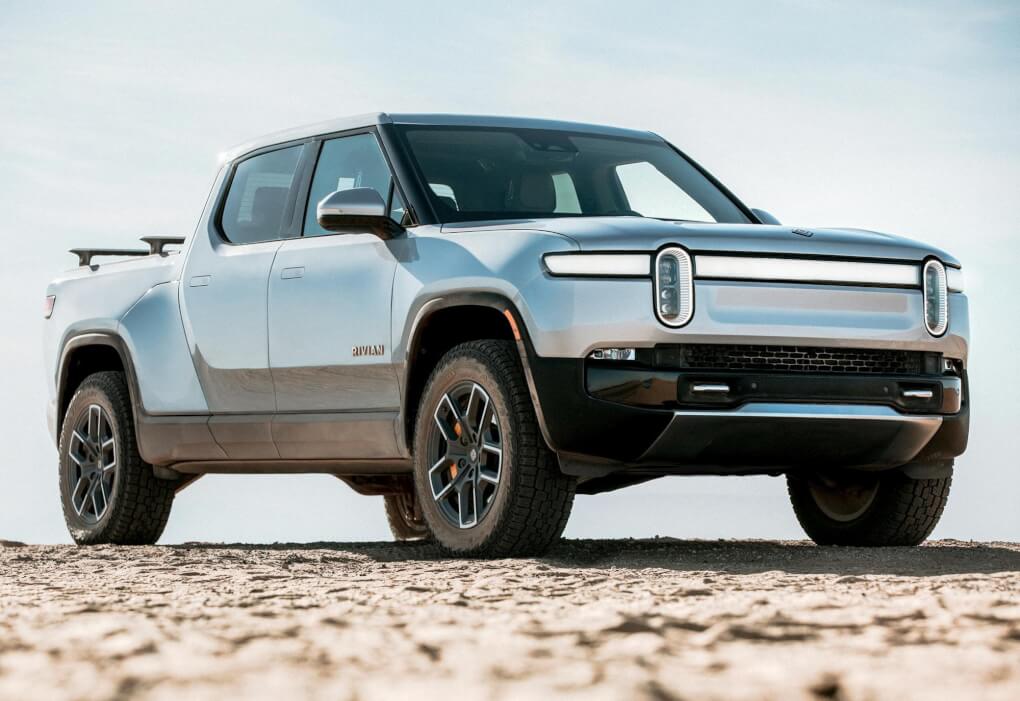Two recent Grand Valley graduates have roles in shaping the future of transportation through their work on electric vehicles.
Daniel Heibel ’20 and Adam Duke ’21 are employed by Rivian, an automotive technology and manufacturing company founded in 2009. The company specializes in off-road electric vehicles, creating products meant to appeal to a more adventure-minded market.
These two Lakers found themselves working on the next generation of vehicles fresh out of college, and credit their experiences at Grand Valley with getting them positions in a highly competitive, quickly expanding company.
“The co-op program is why I’m here. ... I was able to rotate through different departments during my co-ops and it helped me build a knowledge base of this company that benefits me in my current role.”
Daniel Heibel ’20
Steering in the right direction
Both Heibel and Duke are mechanical engineering graduates who participated in the co-op program as students in the Padnos College of Engineering and Computing. In that program, each student participates in one year of full-time, co-op experience plus an industry-based senior capstone project.
Heibel started working full-time as a trail engineer at Rivian in 2021 after doing all three of his co-op rotations at the company’s Plymouth location.
“The co-op program is why I’m here. That’s the sole reason I got this job,” said Heibel. “I was able to rotate through different departments during my co-ops and it helped me build a knowledge base of this company that benefits me in my current role.”
Heibel didn’t set out to work in the automotive industry. He considered various career paths, including aerospace engineering and academia. After his time at Rivian, Heibel decided working on the future of mobility was the route for him.
Switching gears
When Duke got to Grand Valley, he was looking for an extracurricular opportunity that aligned with his passion for clean engineering. He discovered what was then known as the alternative energy club.
The club had spent several years converting an old Honda motorcycle to being fully electric. Nearly all of the members had graduated, and the club began to dissolve. Duke stepped in and worked closely with advisor Ryan Aldridge, operations manager at the Innovation Design Center, to reshape the club into the solar racing team.
The solar racing team now has a goal of competing in the American Solar Challenge, which requires students to construct a solar-powered vehicle that will eventually compete with other teams from across the globe on a cross-country course.
Duke served as an officer on the team, helping to fundraise and source materials to keep the project moving forward.
Aldridge wanted students on the team to gain transferable skills that would apply to all facets of their careers.
“They get to design and build a solar vehicle from scratch. It’s a great way for students to get some hands-on experience outside of the classroom,” said Aldridge. “I would hope that each student who goes through the club can take something they learned, even if it’s really small, and apply that to their careers. I know Adam has done that at Rivian.”
Work on the solar car continues, and Aldridge hopes the vehicle will be ready to race in the upcoming season.
Duke and Heibel became friends through the solar racing team, and eventually found themselves doing a co-op rotation at Rivian at the same time in early 2020. Now, they are roommates near Rivian’s office in southern California.
Racing into the future
Duke didn’t set out to work in the automotive industry, saying he was driven by a general mission to support renewable energy and clean engineering. Since coming to Rivian, he’s found a passion for cars, and said he’s proud to be part of this rapidly growing industry.
“I’m glad companies like Rivian can spur innovation in the electric vehicle market so more options can be offered to consumers. Innovation in the automotive market is greater than any one company,” said Duke. “I believe making this type of technology available to everyone in the near future is a priority.”
To Heibel, Rivian’s work is much more than just creating electric off-road vehicles.
“It’s not necessarily how we look at vehicles, but how we look at mobility. How do we get people around? Electric mobility has to be our future. It’s one of the key components to fighting climate change and it’s not really an option at this point. We want a healthy planet for our kids and generations to come.”







